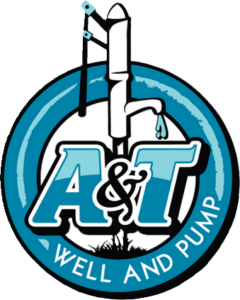Even if you're on a well, you may have pipes with lead that move the…
It's important to you and your family to make sure that the water you drink is free of bacteria and contaminants. The U.S. Environmental Protection Agency has rules that protect public drinking water. Public health authorities and companies that maintain public drinking water are charged with testing and keeping the water safe.
However, if you are on a private well system for your drinking water, it's up to you to keep the water in check. Testing your well water is imperative in knowing that your water is safe to drink. A&T Well and Pumps has expertise in all aspects of well maintenance. In this article, we will explain why testing is important, what testing involves, and how when you should have your well water tested.
Why Testing is Important
Testing your well water is important because there are certain chemical contaminants and microorganisms that can seep into your water supply and cause long-term health problems. Most well water is safe, but there are health risks connected to well water that is used for drinking. Testing is the only way to be sure the water is safe to drink. Contamination of a private well can impact your household in addition to nearby households that use the same aquifer.

Water quality indicators (WQIs) and contaminants should be tested on an annual basis. A WQI test is a test that measures the presence of and the amount of certain germs and chemicals. Contaminants are usually comprised of either bacteria or chemicals. Most coliform bacteria don't cause disease, but if they are present in the water it can indicate that there are disease-causing microorganisms in the water also. These microorganisms can cause diarrheas, dysenteries, salmonellosis, hepatitis, and guardians. Some of the symptoms that occur when bacteria are in the well water are as follows:
- Diarrhea
- Vomiting
- Cramps
- Nausea
- Headaches
- Fever
- Fatigue
- Death
The most vulnerable to getting sick or dying are infants, children, elderly people, and those with weakened immune systems.
Not only can well water be contaminated with disease-causing bacteria, but also with chemicals. Chemicals can leach into the water and cause many health-related issues for those who drink it. Two naturally occurring chemicals and minerals that can get into well water are arsenic and radon. Nitrate is another contaminant that can show up at high levels. Nitrate can come from animal waste, private septic systems, wastewater, flooded sewers, polluted stormwater runoff, fertilizers, and agricultural runoff. Activities that contribute to contamination are local land-use practices (pesticides, chemicals, and animal feeding operations), malfunctioning wastewater treatment systems (sewer overflows), and other sources.
What Testing Involves
You can test your well water yourself using a test kit, or you can get an authorized source to test the water. Often county health departments can help you test for bacteria or nitrates. Companies like A & T Well and Pump or state certified laboratories are also equipped with test kits and provide trustworthy results. Most testing sources provide their own sample containers. If you are doing the testing, use the containers provided and carefully follow the instructions given for collecting, preserving, and handling the water samples.
Samples for coliform bacteria testing must be collected using sterile containers and under sterile conditions. Some procedures require that water runs from an outside tap for several minutes before filling the sample containers. Companies that provide testing will use a trained technician to collect the sample or to analyze the sample directly in your home.
When Should You Test Your Well Water
At a minimum, you should check your well annually in the spring to be sure there are no mechanical problems and test the water once a year for total coliform bacteria, nitrates, total dissolved solids, and pH levels. If you suspect that there contaminants in your water, test for those as well. Identify, as best you can, potential problems because the tests can be expensive.
Also, if you are seeing, smelling, or tasting any of these signs, you should test for contamination in your water:
Visible Signs
Scale Buildup and Scum
Scale buildup or a scummy feeling can indicate calcium or magnesium. Scale buildup is a white substance that clogs pipes, showerheads, and faucets.
Murky Water
If the water coming out of the faucet looks murky or muddled, it can indicate dirt, clay salts, silt, or rust. It can also indicate poor plumbing as in corroded or rusted pipes.
Green Stains on Sinks and Faucets
Green stains on sinks and faucets can indicate that there is a high amount of acid in your water. Iron, magnesium, copper, and zinc can leach into your water through the pipes and other natural deposits, which corrodes and weakens your pipes. If you see green stains, you should take them very seriously as the contamination can cause serious health issues (for example, vomiting, diarrhea, kidney disease, liver disease, stomach cramps, and nausea).
Brown or Red Stains on Sinks and Clothes
Brown or red stains comes from dissolved iron in your well water. Iron deposits have health risks such as damage to the heart, liver, and pancreas.
Taste Signs
Salty Taste
When your water has a salty taste, it could indicate high sodium or chloride. These occur when salt dissolves in water from road salt, natural salt deposits in the ground, sewage, and fertilizer. High levels of sodium and chloride can corrode and damage plumbing, water heaters, and appliances.
Soapy Taste
If there is a soapy taste in your water, you may have high levels of alkaline minerals. Calcium, potassium, magnesium, and bicarbonate are alkaline minerals that aren't harmful in low levels; however, at high levels these can cause gastrointestinal issues and skin irritation as well as metabolic alkalosis.
Chemical Taste
If your water has a taste similar to that of pool water (think chlorine), it can indicate that your water has been contaminated from pesticides and chemicals. These can come from industrial areas that use chemicals. Chemicals from industry can cause runoff and seep into the groundwater.
Metallic Taste
A metallic taste to your water can be a sign of acidic contaminants. If your water tastes like a penny, it's an indicator that acidic contaminants in your water are too high. This can cause problems with your pipes and health risks such as gastrointestinal issues and skin irritation.
Smell Signs
Rotten Egg Smell
If you smell rotten eggs in your water, you have sulfur bacteria or hydrogen sulfide gas. Sulfur bacteria naturally occur from decay and chemical reactions with soil and rocks. It produces a slime substance that helps other bacteria grow. And, it also produces hydrogen sulfide gas, which carries health risks such as nausea, headaches, delirium, and skin and eye irritation.
Detergent Smell
If your water has a smell similar to laundry detergent, you may have a septic tank leak. A septic tank carries bacteria and contamination that is harmful to your health.
Chlorine Smell
There is no mistaking a chlorine smell in your water, This could be the result of excessive chlorination. While chlorine and other chemicals are used to treat water, too much can be extremely harmful, resulting in cancer, birth defects, and asthma-related issues.
Call Us for Well Water Testing and Maintenance
Maintaining your well is crucial to ensure you have water that is safe to drink. The team at A&T Well and Pump has expertise in finding contaminants and diagnosing any issues you may have with your well. We can provide maintenance, repair, and new well installations if needed. Call us at 919-291-4063.
Contact Form
We would love to hear from you! Please fill out this form and we will get back to you shortly.
"*" indicates required fields

